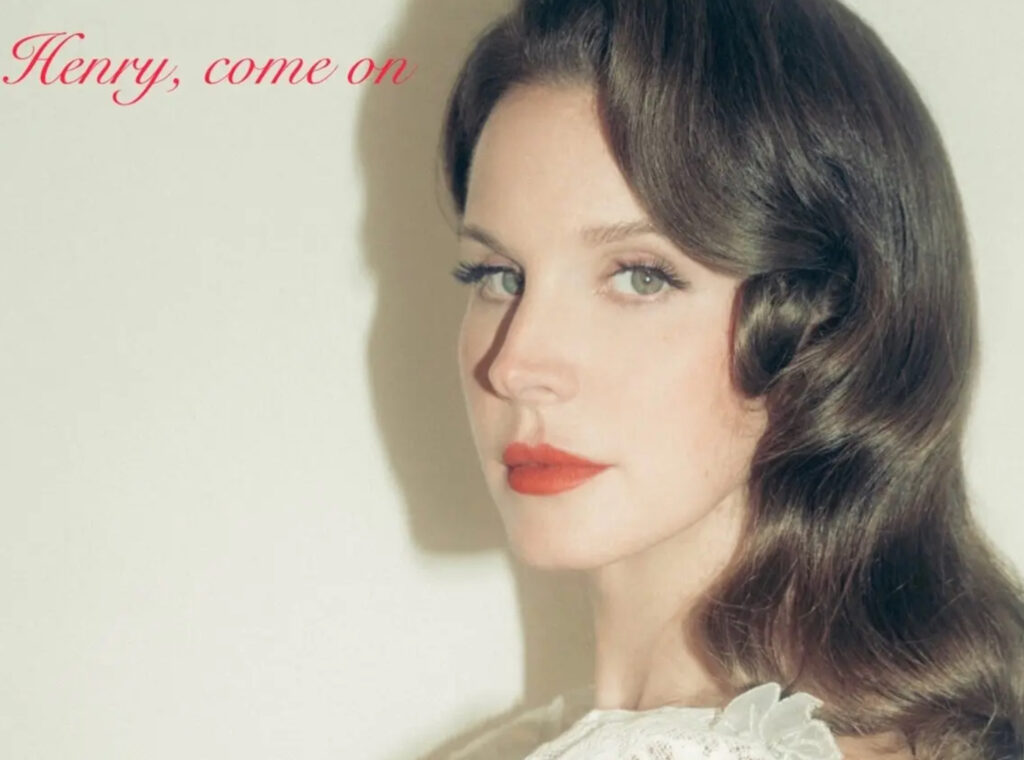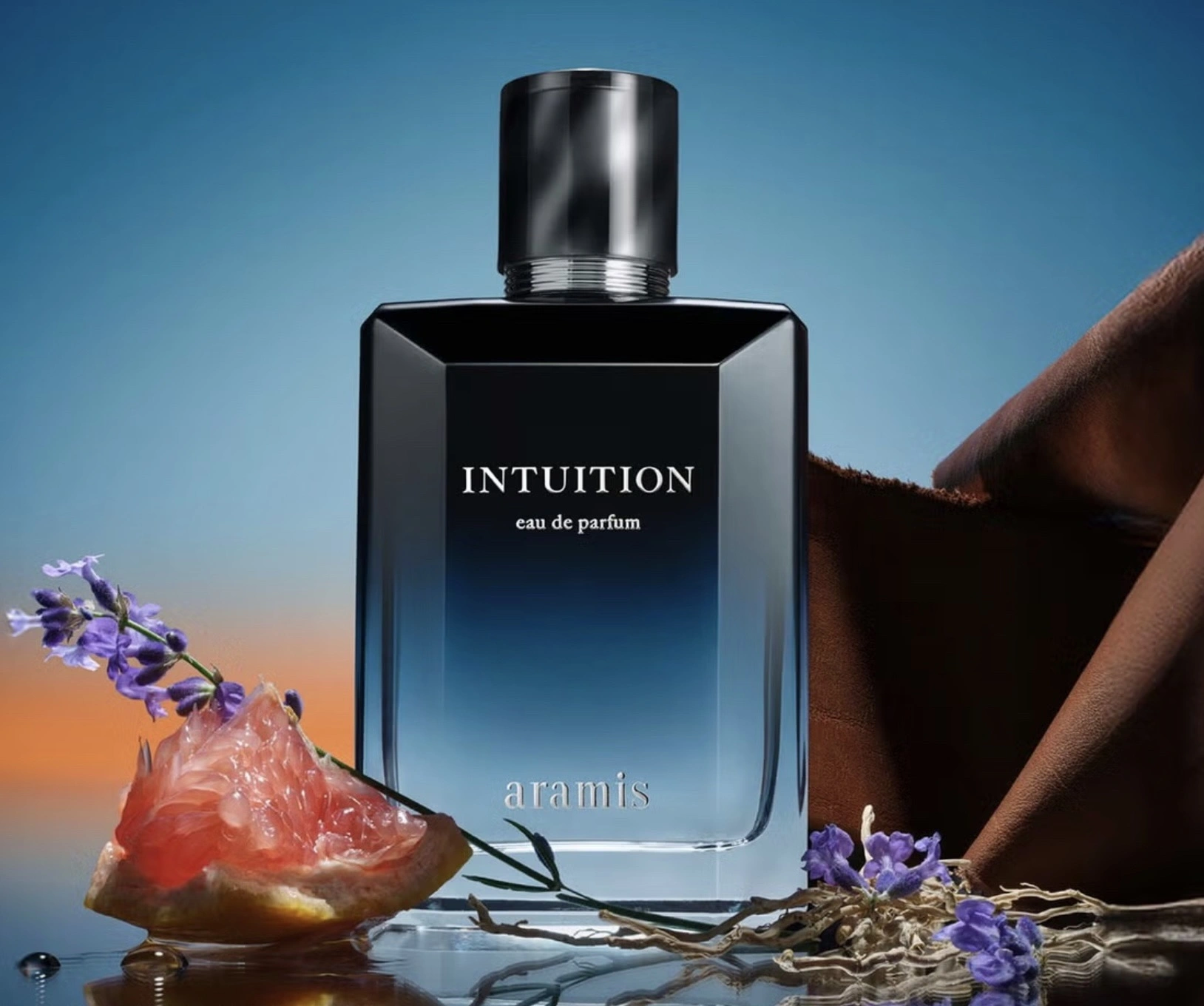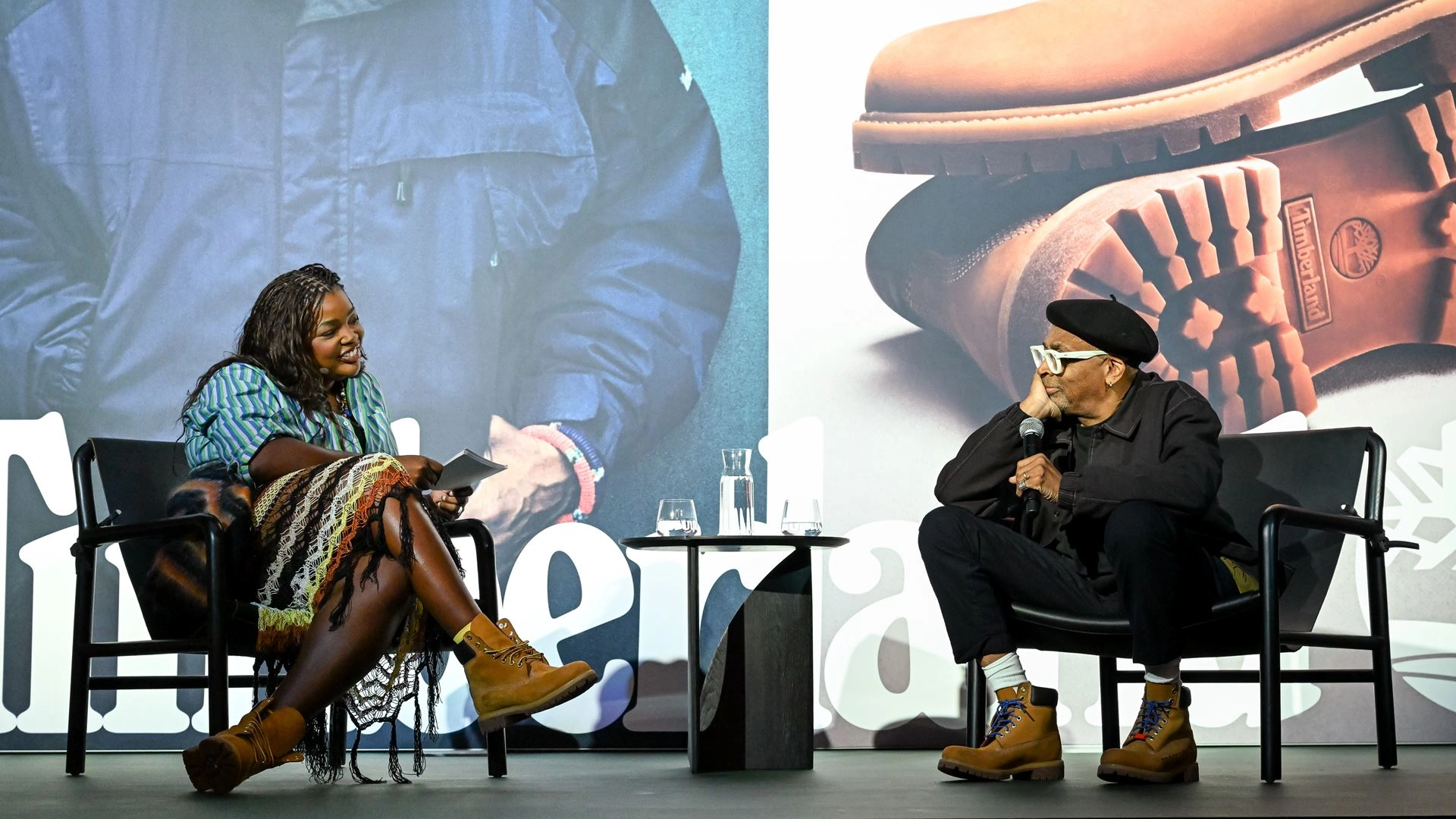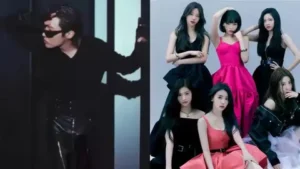Lana Del Rey has never been a stranger to reinvention—though hers is never performative, never abrupt. It’s more like a slow bleed, a soft drift into new terrain that always feels inevitable in retrospect. With the release of “Henry, come on,” the lead single from her upcoming album The Right Person Will Stay (out May 21), we find Lana at another inflection point—this time, steeped in the visual language and emotional architecture of American country.
But if you’re expecting a barnstormer or a rhinestone rodeo, look again. This is Lana, after all. “Henry, come on” isn’t country in the Nashville sense—it’s country in the mythic, post-western, cigarette-lit-by-sunset sense. It’s laced with acoustic melancholy, soft pedal steel echoes, and lyrics that evoke ghost towns and personal hauntings.
The Myth of the Cowgirl Rewritten
“Tell him that his cowgirl is gone.”
It’s one of the most arresting lines Lana has ever written—devastating in its simplicity, wrapped in barbed wire and perfume. In that single sentence, she casts off romantic dependency, the myth of the waiting woman, and perhaps even a decade’s worth of her own public image. The cowgirl isn’t riding off into the sunset in pursuit of love. She’s vanishing, deliberately, reclaiming solitude as salvation.
The lyric doesn’t just land—it opens a fissure. We’re no longer in the world of dreamy co-dependence (Born to Die) or tragic grandeur (Norman Fucking Rockwell!). This is Lana entering a frontier space, one that reimagines Americana through feminine sovereignty, quiet defiance, and emotional economy.
Musically Minimal, Lyrically Expansive
“Henry, come on” opens with a whisper of brushed acoustic guitar and the shimmer of low piano. There’s space—vast and intentional. Lana’s voice enters as though pulled from an answering machine cassette, clear but distant, wrapped in a slight Appalachian twang that feels more emotional than affectational.
Strings rise and fall like heat waves off desert pavement. There’s no chorus in the traditional sense—just phrases that echo and expand, building into something more meditative than melodic.
“I made him dinner, he said a prayer / But he left his boots at the top of the stairs.”
The line sounds like it could be plucked from a Faulkner novel or murmured in a Terrence Malick voiceover. This is narrative songwriting in widescreen, where the details do the heavy lifting.
Not Nashville, But Nevada: A New Americana
Let’s be clear—this isn’t Lana going full Dolly. There are no belt buckles or fiddle breakdowns. Instead, she’s borrowing the textures of country—its silence, its longing, its landscape-based storytelling—and filtering them through her cinematic palette.
It’s less Patsy Cline, more Lucinda Williams meets Sofia Coppola. More Paris, Texas than Urban Cowboy.
And that’s the brilliance of “Henry, come on”: it deconstructs country without disowning it. Lana doesn’t parody or overcommit—she visits, lingers, and makes it hers.
Gender, God, and Gone Girls
Religion hums just beneath the surface of “Henry, come on.” There are prayers, references to modesty, the unspoken presence of patriarchal structures. But Lana doesn’t confront these head-on. Instead, she lets them exist like old furniture in a dusty room—symbols of a belief system she’s quietly walking away from.
“He said grace, but didn’t mean it / I wore white, but didn’t feel it.”
These are lines written by a woman done with performative purity. In many ways, “Henry, come on” is a reclamation of the “good girl” trope Lana has both inhabited and critiqued for over a decade.
She doesn’t rage. She doesn’t even resist. She simply leaves.
Country as Code: Why Now?
Why is Lana turning to country now? Part of the answer lies in contextual timing. We are living in an era where Americana is being reshaped by women: Kacey Musgraves, Mitski, Orville Peck, Beyoncé’s upcoming country album. Country is no longer a genre—it’s a platform for emotional truth, sonic restraint, and cultural interrogation.
Lana has always trafficked in American mythology—Marilyn, Kennedy, west coast decay—but now she’s reaching for the rawer stuff. Not the glamor of the 20th century, but the dust, the dirt, the bone-deep ache of the interior states.
Fan Culture and the Era of the Liminal Drop
Before “Henry, come on” was even released, fans had created moodboards, lore, and theories about the track. The era of The Right Person Will Stay is deeply online, but analog in tone—teasers that look like weathered postcards, typewritten lyrics, grainy black-and-white clips of Lana walking across an empty field.
When the track finally dropped, it felt like a cultural exhale. Not because it delivered what was expected, but because it reaffirmed Lana’s instinct: to offer not what’s loudest, but what lingers.
Comparative Landscapes: A Look Backward and Forward
In the broader Lana discography, “Henry, come on” shares DNA with songs like:
- “Yosemite” (from Chemtrails Over the Country Club)
- “Ride” (from Born to Die: Paradise Edition)
- “Mariners Apartment Complex” (from Norman Fucking Rockwell!)
But it is also a step beyond. There’s a confidence in the quiet, a refusal to reach for climax. The track doesn’t build—it settles. And in that settling is a new kind of power.
Visuals and the Looming Album
Though the video for “Henry, come on” hasn’t yet been released, Lana has teased sepia-toned images—herself in a prairie dress, eyes half-lidded, backlit by a church window. There’s a dried bouquet of baby’s breath. A tin kettle on a fire. A wide-angle shot of nothing but land.
All signs suggest that The Right Person Will Stay will continue this lean into emotional rurality, pairing Southern Gothic imagery with postmodern womanhood.
This isn’t country Lana—it’s ghost-country Lana. Americana rendered through mourning, memory, and minimalism.
A New Quiet for a Loud Time
“Henry, come on” isn’t just a new single. It’s a statement of intent. In a musical landscape still addicted to virality, volume, and immediacy, Lana is moving slower, quieter, and deeper. She’s not chasing genre trends—she’s listening to what the genre can hold.
And what it holds, in her hands, is this: a woman walking away from the table, still wearing white, but this time not asking for permission.
“Henry, come on” is available now on all streaming platforms. Lana Del Rey’s upcoming album, The Right Person Will Stay, releases May 21, 2025.
No comments yet.








